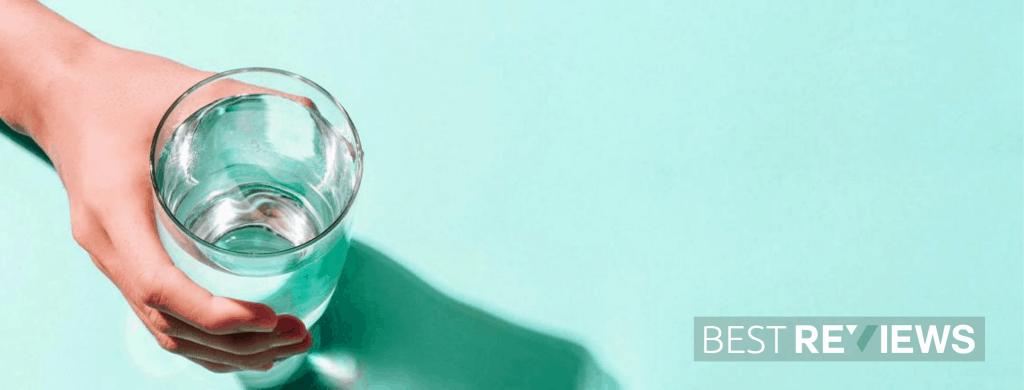
Having a water softener installed in your home is a great way to ensure the hard water in your house will not damage any pipes or plumbing, this is done by removing the harsh metals that are found in hard water through a filtering process.
However, although having a water softener gives us great benefits household wise, the real question is, is it safe to drink?
Is Drinking Softened Water Unhealthy?
The biggest worry for most people when it comes to drinking softened water is its sodium content. Softened water contains a sodium ion for every metal ion which is removed, this sodium is called sodium bicarbonate, not the type of salt that you can taste like table salt.
With the high sodium levels in this softened water it may not prove healthy to drink if you already consume a high salt diet, or if you are giving to babies due to their under-developed kidneys.
We've reviewed the best water softeners here, if you're in the market for one?
The good news is that softened water is pretty much safe to drink as long as your hard water doesn’t exceed past 400ppm so as your softened water can remain under 200 mg of sodium.
If the water is harder in your area, then it's more likely that once it is softened it may go over this sodium limit, therefore it would be recommended for your health that a hard water tap is installed too.
Is It Better To Drink Hard or Soft water?

Hard water naturally contains minerals such as chalk and limestone or calcium and magnesium, these are picked up from the filtration process into our waterways.
Drinking hard water actually has some notable health benefits due to its minerals and has been linked to lower levels of cardiovascular diseases. Hard water also has a better taste to some people due to its lower sodium content.
However, as we touched on above, using hard water in your pipes and household has negative effects such as limescale and can even give you dry skin due to its harshness.
Pros
- Better taste.
- Better for household appliances and skin.
- Mineral benefits.
- Can lower cardiovascular diseases.
Cons
- Dry skin when bathing.
- Uses more energy.
- Tends to ruin household appliances.
Soft water on the other hand is much more efficient to use household wise due to it pro-longing your household appliances life and being softer on the skin. Houses that use soft water often have a lower electricity bill.
Drinking wise, soft water is not really recommended as a number one drinking source, but can be used as drinking water if it contains under 200 mg of sodium.
Downfalls of drinking soft water are its unsuitability for people with heart problems or low-sodium diets, the chemical process of soft water can even pick up elements of lead which is harmful to the human body.
Pros
- Great for the household.
- Soft on skin.
- Low energy use.
Cons
- Can’t be used for drinking if you are a baby or on a low-sodium diet.
- Daily drinking is not recommended.
- Only safe if it contains under 200 mg of sodium.
- Can cause heart problems or blood problems.
Therefore, it's recommended and probably better health wise to drink hard water, however if you do have to drink soft water, try not to ingest so much of it daily and avoid consumption if you are giving it to babies or are on a low-sodium diet.
Can You Water Plants With Softened Water?

Using softened water to water plants is generally not recommended. Plants are not designed to withstand high amounts of sodium, and if you consistently water your plants with this higher sodium softened water then its likely they will die of dehydration.
However, there are tricks to get around this by either installing a bypass valve; a line that connects to the water line before it gets softened, or a mix with softened water; try collecting rain water or distilled water and mix this with the softened water, this will reduce the overall sodium content.
How can I treat soil which has been affected with softened water?
The first thing to do if you have damaged your soil by watering with softened water is to immediately stop using the high sodium water and use rain water instead.
Unfortunately, if there is a large amount of salt content already in your soil, there is no quick fix for this, but you can use a process called ‘leaching’ which basically means watering your garden frequently to try and flush out the excess salt.
Do make sure your plants and soil has a place for drainage and you are supplementing the minerals in the soil that will be flushed out due to the leaching process. You will have healthy soil again in no time if you follow these steps.
So Can You Drink Softened Water, Yes or No?
Yes, you can drink softened water however if you have an option to drink hard water, that would be the better choice.
If you are giving softened water to someone with heart problems, babies, or if you are on a low-sodium diet however, drinking softened water is not recommended.
Overall, you should check with a water specialist about your household's salt levels before making any decision.

